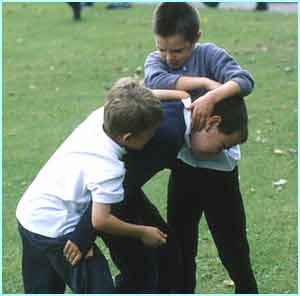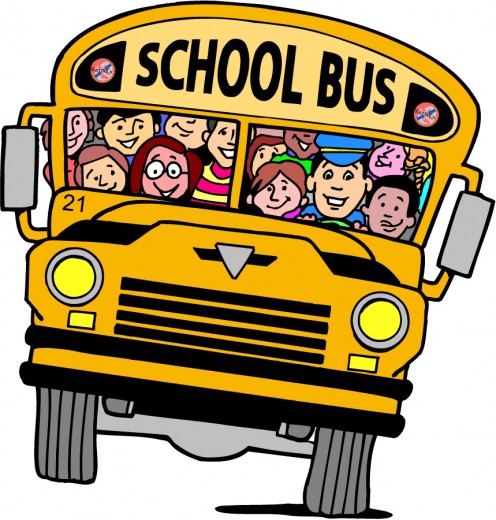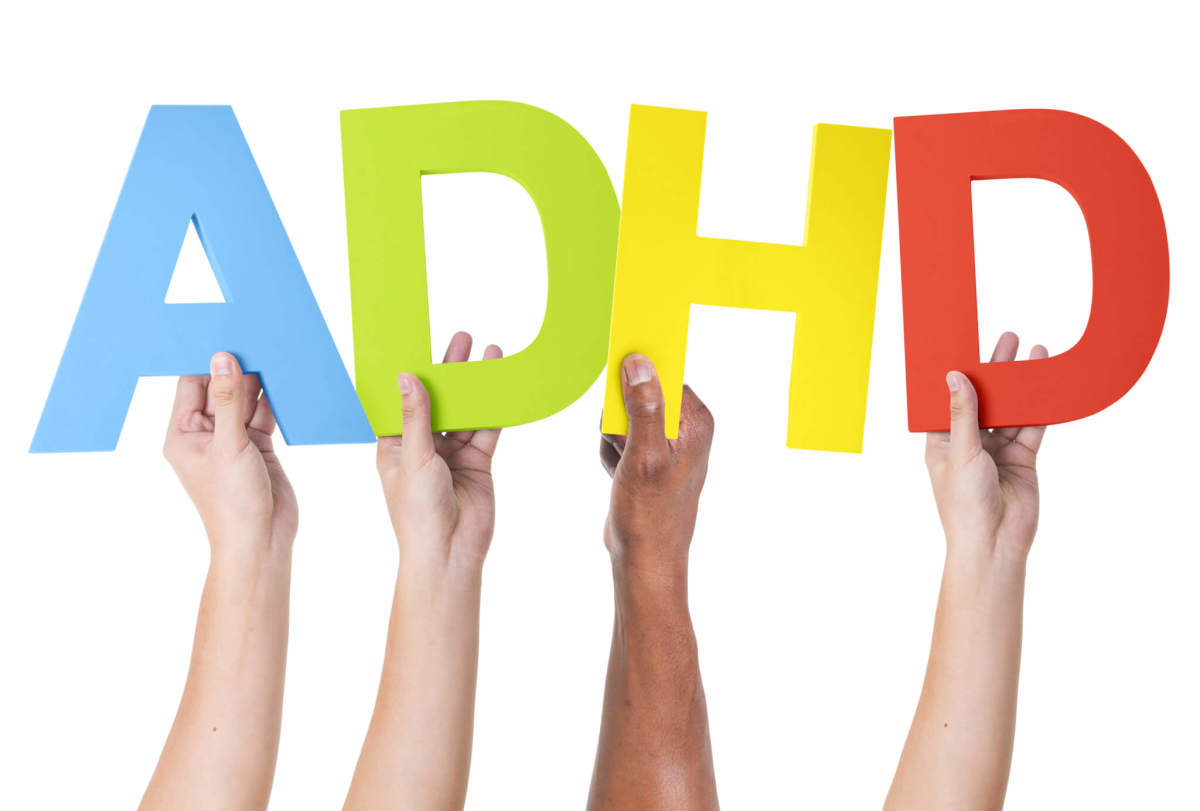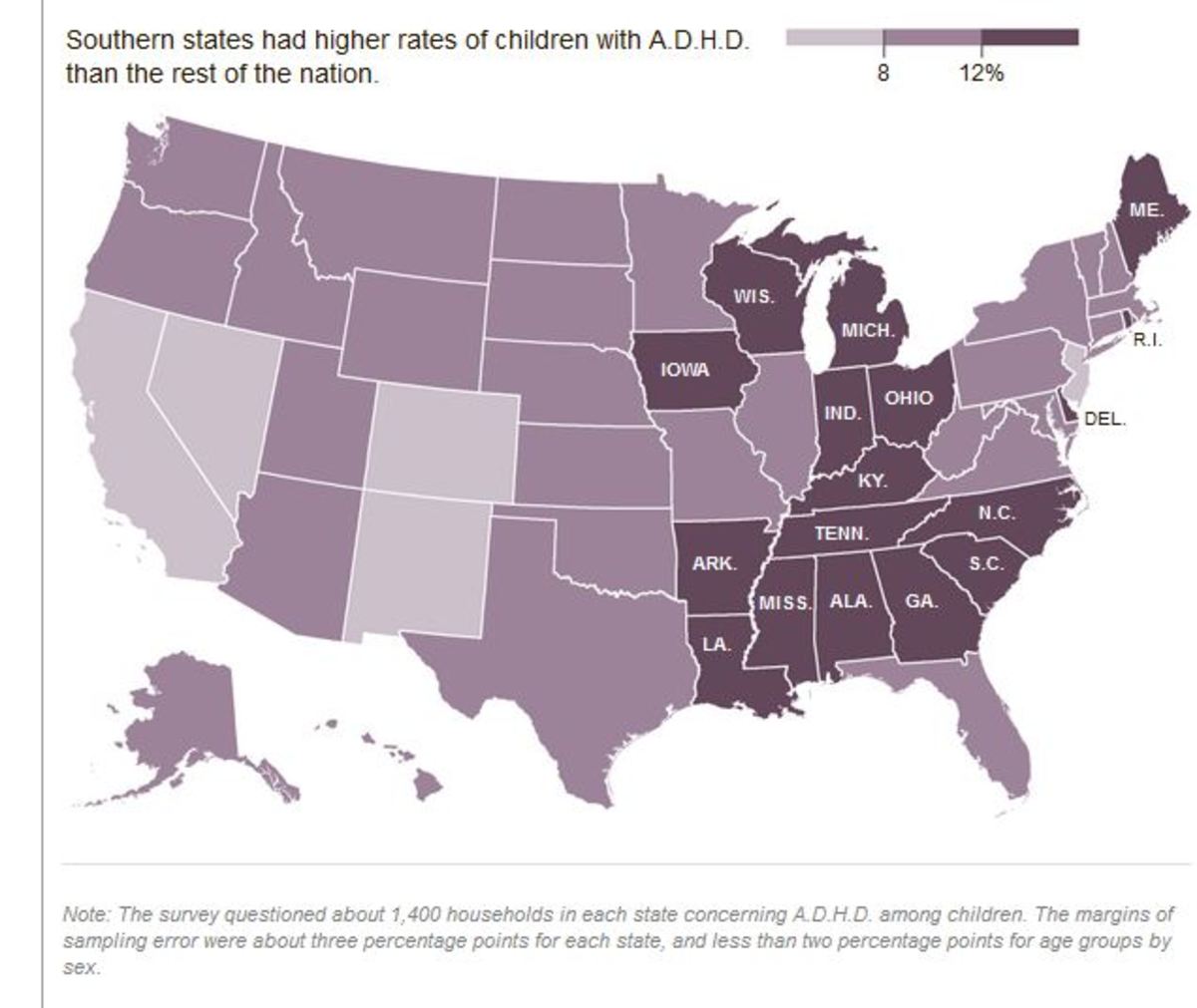Attention Deficit Disorder in children
What are we dealing with here?
Attention deficit disorder (ADD) or attention deficit hyperactivity disorder (ADHD) describe the 2 subtypes of attention based disorders. A child can show characteristics of the more hyperactive type - not being able to sit still, interrupting, shouting out, can't stand in line, impulsivity and poor judgment. These are the kids who go through life like a bull in a china shop, they rush through projects, jump from task to task and are generally little whirlwinds.
Kids can also show the more inattentive type which is characterized by difficulty following instructions, disorganization, trouble finishing homework or leaving projects till 8pm the night before. These are the kids whose minds seem to constantly be somewhere else, they are often tangential, jumping from topic to topic with no real links, wander into dangerous situations as they are in the middle of solving a fascinating...but was that a butterfly?. Some kids show a more mixed presentation with feature of both leading to a diagnosis of combined type - driving teachers and parent's to the brink.
- Neuropsychonline
NeuroPsychOnline is a subscription website with a nominal fee and the ability to access computer games which enhance visuo spatial skills, attention, concentration, memory and social skills. Research based. Highly recommended. - Foundation for Children with Behavioral Challenges
Great information for parents of children with all types of behavior problems, but particularly useful for parent's of children with bipolar disorder, adhd or oppositional defiant disorder.
While many kids show some of these characteristics some of the time,
for these children, it really gets in their way - and like most
emotional disorders, since they generally involve behavior, their
symptoms are often attributed to stubbornness, willfulness, defiance
and oppositionality. Again, while most kids will exhibit some of these
traits from time to time there are very few kids who are deliberately,
consciously mean, manipulative and spiteful on a regular basis, mostly
because it's not very much fun. Being in the dog box sucks for anyone - so why would anyone want to do that? Given the choice between positive & negative reinforcement, there are few of us who would choose the latter- and those that would probably need treatment. It is important for people to move on from the blaming stance to the "what do we do now?" stance if we are to focus on the child's best interests.

Executive functioning and ADHD
So let's talk about what the reasons are for these seemingly pointless behaviors. One of the aspects of ADHD/ADD which has the biggest impact on the lives of these children is still one of the least understood factors. While a number of brain studies have shown a variety of differences between children with ADHD/ADD and those without, one of the most important differences is impairment in executive functioning.
Executive functions are largely controlled by the frontal lobe, which is one of the last areas of the brain to develop. This area controls goal directed behaviors, planning, judgement, impulsivity, ability to organize and the ability to self monitor and learn from consequences- the areas most impaired in those with ADHD/ADD. Understanding this can make some of the most frustrating behavior make sense. These kids truly struggle to set goals, be internally motivated, focus, organize and most importantly self monitor, anticipate consequences and understand another's perspective. So, many of the most frustrating and seemingly intentional behaviors associated with ADHD are at least partly related to the area of the brain which is associated with executive function deficits.
Of course, this doesn't mean because there is a physiological basis for the behaviors they are acceptable, but it's helpful to understand, even just for your own sanity, that many of these behaviors stem from a lack of skill rather than from a single minded plan to make your life miserable. This also means that these behaviors can be taught and learned - and most kids really want to learn the skills. If you talk to a kid who is in the principal's office if they like being in trouble all the time, you might get a "I don't care", but you won't get an enthusiastic yes. If you can spend the time giving these kids some tools to get positive attention, I can almost guarentee that they'd prefer that.
ADHD & girls
Why don't these kids learn from their mistakes?
There is another other important concept to know in understanding these kid's difficulty learning from consequences; decalage refers to unevenness in development. One of the most frustrating and difficult things for parents to understand is why their seemingly intelligent child would have these types of behaviors. None of us function at the same level all the time, we have days when we feel sharp and on top of things and days when we don't. Well, it's much the same for kids, only more so.
There is an enormous amount of complex brain development during childhood and adolescence and while the brain is working on integrating all the external information, things don't always work the first time. Sometimes those motor neurons are firing just great and you catch the ball, other times the brain may be working on something else entirely and..ooops. It is fairly common for a child to have, for example excellent visio spatial skills and can draw all sorts of things, but who struggle with reading or math. Mostly this evens out by adulthood, but there are certainly times when you see an adolescent body with a preschool mind in any child.
The point of this is that when the brain is developing a new skill, there will be times where it reverts back to well known abilities. Kids don't just get up and walk one day (well, not most) and even once they've got it, they still fall down. As frustrating as it can be to explain to a child why a behavior is inappropriate and have them faithfully promise never to do it again, only to watch them repeat it 2 minutes later, it's more likely that the brain was focusing elsewhere rather than willful defiance and disobedience. In kids with ADHD this tendency is often magnified and they have trouble remembering and following directions and often seem not to learn from consequences, which is understandably frustrating. As a rule, however if a child does not seem to be learning from a consequence, it's probably the wrong consequence and the child is not making the connection between the consequence and the behavior.
Also, honestly if consequences are not immediate and directly related to the offense (& I don't mean verbally, that doesn't work for these kids), you are generally wasting your time, stressing yourself and probably generating much tears, drama and tantrums. Punishment is simply, scientifically not effective as a means of behavior change. The only thing that works is reinforcement - which is another hub in itself. I want to be clear that I don't mean that kids with ADHD, or any other kids shouldn't take responsibility for their actions, but mostly in life if you do something negative you get fairly direct feedback. You snap at the waitress and your coffee takes 45 minutes, and kids are fairly concrete, so why would we not be as direct and simple as possible rather than having them extrapolate from a grounding that disrespect is not acceptable.




School and ADHD
School for a child with ADHD can be a nightmare, not to mention what it's like for the parents. Unfortunately, many of the symptoms of ADHD are just thosr behaviors which most annoy teachers and are frequently ascribed to intention or plain "behavior problems". The trouble with this label is just that - it's a label, nothing more - and more specifically, it's often used as a short cut to avoid intervention, as in "but it's a behavioral issue", but the bottom line is, behavioral or not, these are behaviors which are impeding the child's ability to get an education, and that's really our responsibility, no matter where the symptoms come from or how they're expressed.
Back to one of my favorite examples: a child with severe juvenile diabetes requires additional accommodations at school, and no one questions this, people are sympathetic, after all, there's something physically wrong, right? Well, these kids can get cranky, fussy, distractible and have behavior issues too when their sugar levels are off, but you rarely hear these kids being characterized as "behavior disordered" even if they show the same behaviors as kids with behavior disorders.
As important as timely and effective treatment is, social education to reduce the stigma is essential. It's essential to be clear that kids with behavior issues are not having fun, believe it or not, it's not fun to get into trouble everyday - and that whole negative attention thing is really overused. Yes, some kids do things because they are so desperate for attention that any attention is better than none, but to label these kids misses the bigger point - why do they need attention so much that they are willing to accept negative attention, don't you think that if they could get enough positive attention, they might have tried this? Kids who get enmired in this cycle need our help more than anyone, not our judgements, which make us feel better as we avoid responsibility for trying to change things.


Accessing school based services
For many kids with ADHD, special education services may not be an option as their symptoms do not meet the level required for severe emotional disturbance. While some schools classify ADHD under OHI - other health impairments, others may not. Being turned down for Special Education services, however does not mean that your child has to just grin and bear it.
Under the Civil Rights Act, each child is entitled to an equal education and therefore, if there is a disability which impedes a child's ability to learn, where possible accommodations must be made. A 504 plan takes less administrative time and can also contain almost any accommodations deemed appropriate by the parent-school team, and like an IEP it is legally binding. There are, however fewer procedural safeguards regarding time of response and oversight, but if the plan is student-parent-teacher driven there should be few problems.
Where Special Education placement becomes more important is when the child's symptoms are at the level that they are in danger of placement in a residential treatment facility as the school district will only pay for Special Education students and most of us in the real world could never afford the $6-8000/month tab for a 9-18 months stay- but that's at the high end, and by that time there should really be no question about the kid's need for services.
Russell Barkeley - one of the foremost researchers in ADHD
Need to understand the diagnostic criteria?
- BehaveNet
Gives links to descriptions of all currently recognized mental/emotional disorders. A helpful resource to understand symptoms and differentiate disorders. Do not use for diagnostic purposes! - Special Education Evaluation
Helpful site with information to help parent's navigate the special education system, which can be daunting and confusing.

Interesting hubs
- How should we discourage inappropriate behavior in children?
Discouraging bad behavior in children can be tricky. Children who are given very little positive reinforcements for their behavior may act out for the attention, even if the attention is negative.
Was this information helpful?
Dealing with ADHD
So, what are some of the ways we can help these kids?
Going back to the executive function thing - firstly, as annoying and exhausting as the above behaviors may be, it's really important to understand and acknowlege that these kids are not doing them intentionally, maliciously or just to drive you crazy. Executive functioning also affects both motivation and ability to anticipate consequences, so these kids struggle with motivation and sometimes seem to get it and sometimes don't. Not that kids don't make excuses or try to avoid tasks, but for these kids it's way beyond that. It's not comfortable living in their skin.
If we think of some of the difficulties associated with ADHD - being scattered, disorganized, not planning well, not anticipating consequences, lacking motivation and hyperactivity they boil down to deficits in a few central areas, namely deficits in regulation, attention and anticipation. Knowing this, there are simple ways that any parent can work with their chils to build these areas. Firstly, attention - any activity that encourages focused attention from chess and board games to gardening, physical obstacle courses, reading and crafts. The list is potentially endless, it's a matter of calling attention to things your child naturally likes to do and have them really pay attention to the experience - How would you describe it to someone from Mars? What would it look like if it were a color? an animal? a person? be a newcaster, a sports presenter, an emcee. The idea is to pay attention to one's own cognitive processes - metacognition or thinking about thinking (totally clear now, right?). This is an essential skill which may children, but particularly those with ADHD lack. They struggle with gestalt, or the overall view of a situation. They are so fascinated by whichever aspect catches their eyes that they don't see the forest for the trees, so to speak. Martial arts, tai chi, yoga and meditation are all excellent for kids who are all over the place.
The second benefit of many of the above exercises, including deep breathing, relaxation, biofeedback and others is that they begin to exert a calming effect of the sympathetic nervous system, helping with the second deficit of regulation. Anticipation is a skill that can be taught, but most of us think we shouldn't need to - but sometimes we do, you'd be amazed at how back to front kids can get things. Remember that game broken telephone?....Kids in general, and especially those with executive function deficits struggle with abstract thinking and therefore have a hard time understanding how their behavior impacts others or anticipating consequences. The problem usually comes when these kids are bright because people assume - and back to the decalage, that because a kid sounds smart and sophisticated and looks that way that they can really think like an adult. As much as kids would like us to think that, they really just don't, they don't have the physiological hardware that adults do.
Games involving what if. social stories, role plays, charades, anything involving the imagination and anything that helps illustrate anothers point of view. Kids can often verbalize that they would cry if someone hit them, but really don't get on a certain level that hitting someone else would make them cry, they're much more in the moment, my-toy-give-it-now kinda guys.
These kids have real deficits, but they also have great capacity, we often have to get over our feeling that they should know/be/like something because we do, we forget that we all had to learn to walk. Much negative behavior stems from a skills deficit rather than innate negativity, and if we can offer the skills and support their growth. It not only provides a growth experience for the child, but contributes to their developing perception of the world which will eventually determine their perceptions of others and provide templates of how to be with others in distress.









